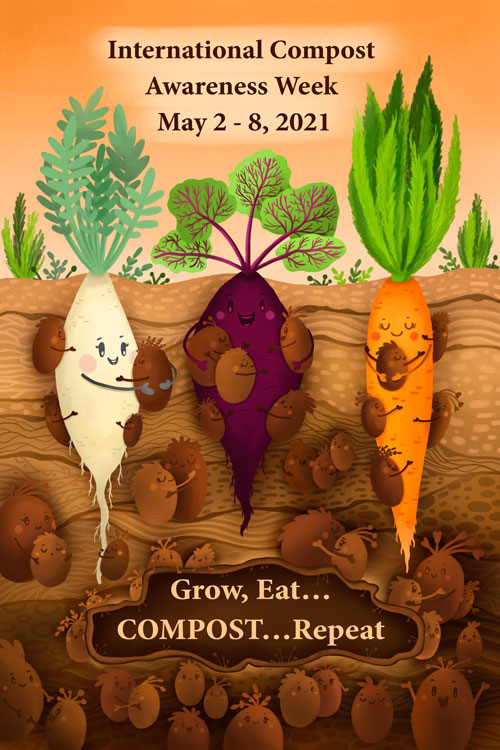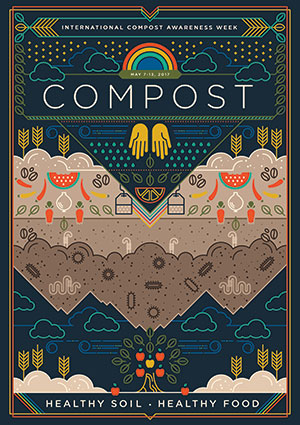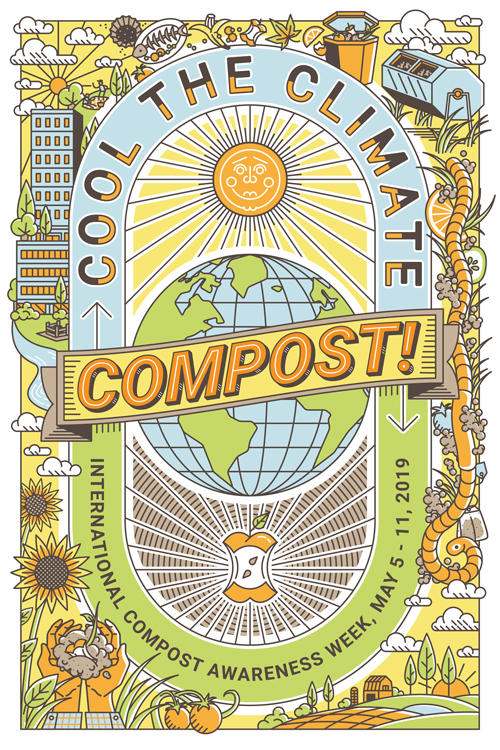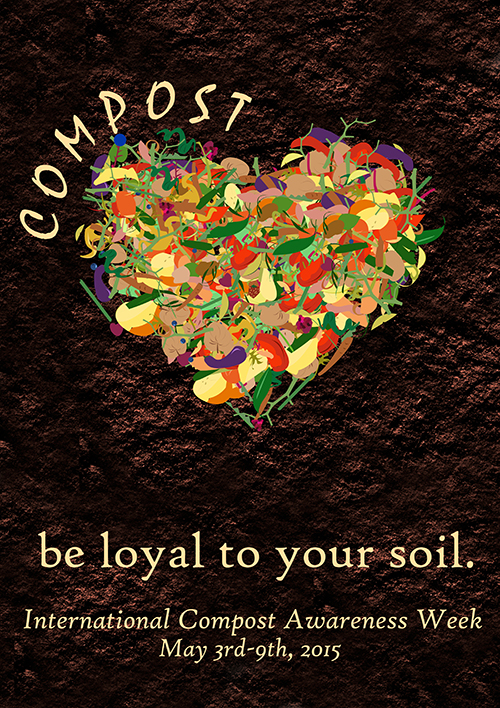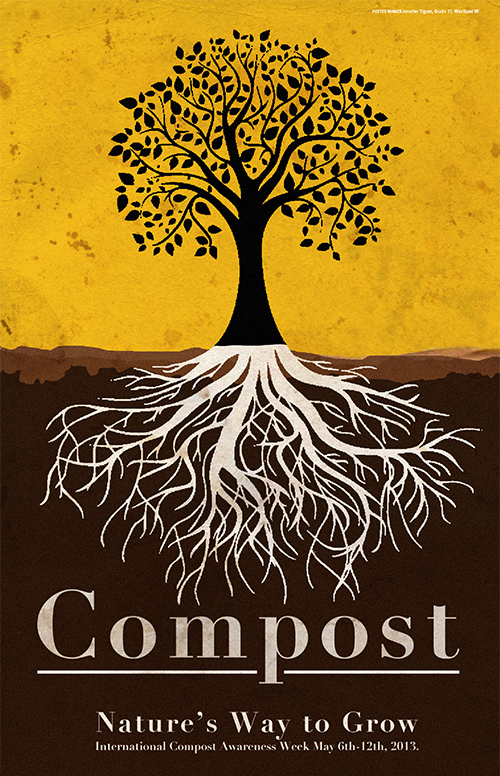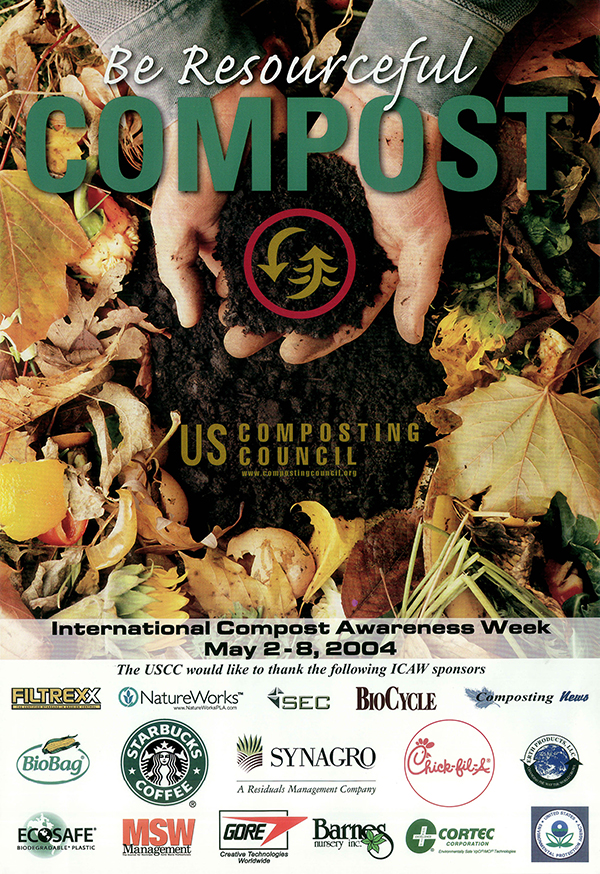ICAW 2025
May 4 – 10, 2025
Thank you for your interest in International Compost Awareness Week (ICAW) 2025
International Compost Awareness Week (ICAW) is the largest and most comprehensive education initiative of the compost industry. It is celebrated during the first full week of May throughout the US and internationally. The goal of ICAW is to work together to raise public awareness on why we all should be composting our organics and using compost to create healthier soil. The program includes a poster contest held in the fall and thousands of activities and events held during the week in May. Throughout the week of ICAW, events are held all over the country and the world with communities, schools, governments and businesses planning different activities to encourage and celebrate composting – all types of composting – from backyard to large–scale.
Theme for ICAW 2025:
Sustainable Communities Begin with Compost!
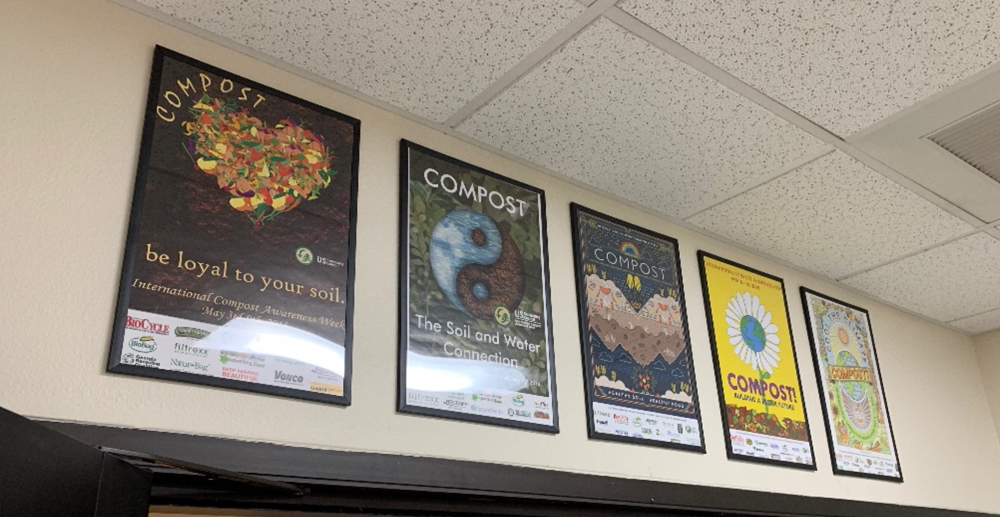
Each year, for ICAW in the US a new theme is chosen. The theme is used for the Poster Contest, which encourages artists, age 14 and older, from throughout the world to create a design sharing the importance of composting and compost use.
What does this theme mean?
This theme was chosen with the goal of highlighting composting in all kinds of communities at any scale – from the backyard home composter to community composters, to large-scale facilities to all those who recognize the many benefits of using compost on our soils. As has been done for the past several years, the theme was chosen by all of the international partners who are part of the International Compost Alliance – making it truly an international theme. This year’s theme was inspired by the United Nations Sustainable Development Goal #11 “Sustainable Cities and Communities: Make cities and human settlements inclusive, safe, resilient and sustainable.”
From navigating skyscrapers to the far-reaching fields of corn or forested acres of rural America, composting is an essential element in developing a sustainable resources management plan for any community. Composting empowers communities to manage their own waste, create job opportunities and support healthy soils with locally made compost. The theme highlights that when we're repurposing the food that would go into the landfill, we're creating fresh nutrients for the soil, which regenerates the earth and provides healthier food for everyone in the community. Composting is an action everyone can participate in, no matter the size of your home, garden, or community! Together, through the power of compost, we can create a more sustainable future for our communities!
 Dave Miles, Erica Parker (Californians Against Waste), Michelle Horneff-Cohen, Jeff Ziegenbein, Nick Lapis, Katya Forsyth, Dan Noble, Phillip Vander Klay. ACP members, board, staff, former ED, and partners.
Dave Miles, Erica Parker (Californians Against Waste), Michelle Horneff-Cohen, Jeff Ziegenbein, Nick Lapis, Katya Forsyth, Dan Noble, Phillip Vander Klay. ACP members, board, staff, former ED, and partners.
How can I get involved with ICAW?
- To learn more about the many ways you can contribute, read the Celebrate ICAW Manual.
- Check out the event page, which is updated with plans across the country as we get closer to ICAW, for more event ideas.
- Volunteer to help encourage or run ICAW events or activities in your state or community. Click here to learn more about being an ICAW volunteer coordinator.
- Many companies strongly support ICAW each year by becoming an ICAW sponsor. If you would like to be an ICAW 2026 sponsor, contact us at, icaw@compostfoundation.org .
- Finally, browse the ICAW Downloads/Resources (at left and above) for tools, resources, and ideas to help YOU celebrate International Compost Awareness Week!
What are the benefits of using compost and composting food and yard waste?
Here are some key facts regarding organics recycling and compost use highlighting why ICAW is such an important awareness-building program helping make our communities more sustainable:
- Composting reduces methane emissions through aerobic managed decomposition providing for a more sustainable community.
- Composting lowers greenhouse gases by improving carbon sequestration in the soil. Getting the carbon back into the soil serves as a “carbon bank,” helping to store carbon thereby removing it from the atmosphere.
- Compost provides essential nutrients for plants, promoting vibrant gardens and farms. Healthier soil leads to healthier, more nutritious food for our communities.
- Compost use increases the water-holding capacity of our soils; important as our communities are more and more often seeing drought and or intense rain events causing soil runoff and erosion.
- Community Gardens and Green Spaces: Compost plays a vital role in community gardens, fostering green spaces that provide fresh produce, recreational opportunities, and community gathering places.
